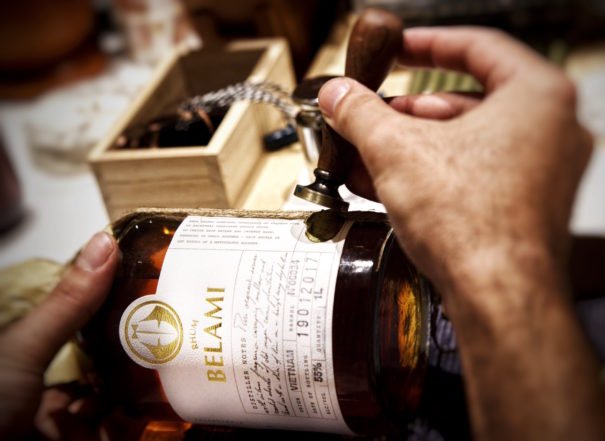
Nobody’s Itching for a Stiff Glass of Snake Wine at the End of a Long Day

Nobody’s Itching for a Stiff Glass of Snake Wine at the End of a Long Day
Rum in Saigon
It’s Friday night in Saigon and I’m at the WOO Social Bar. It’s chic, trendy —whatever you want to call it—and not exactly my style, but I’m here because of the man making drinks behind the bar: Roddy Battajon, enemy of my liver. To be more precise, I’m here to drink his rum, Rhum Belami, the first handcrafted cane spirit in Vietnam.
Deferring to his recommendation for a cocktail, he goes about muddling pineapple, burning a cinnamon stick and knifing off a few flakes into the glass, adding this and that, mixing in his dark rum and shaking it all up, garnished with rosemary. The artistry of it is a bit lost in my daze – I’ve sipped a few glasses of his gold rum before showing up – but the enjoyment of consumption is not. At first sweet and aromatic, the flavor takes a turn with traces of coffee and black pepper as it goes down, before ultimately leaving a smoky sensation in the throat and a warmth in the chest.
If you’ve been to Saigon, chances are the locally-made spirits you’re familiar with are such exotic elixirs as scorpion and snake wine. In my experience, the only reason to drink these is to say that you did, and when the novelty wears off nobody’s itching for a stiff glass of snake wine at the end of a long day. Unless, of course, you’re looking for an ancient antidote to boost your virility.
So when I heard a few weeks ago that there was a guy from Martinique making rum in his apartment here, I had to track him down and procure a bottle. In the name of journalism, I reached out to Roddy and arranged a time to visit his homemade lab and do some drinking.
This is when I realized he’s not just some madman making hooch in his bathtub, but has a nearby production facility and, amidst the rum lab that takes up a room of his home with various tinctures fermenting in glass vats, I learn that Roddy has in fact brought a family tradition to Vietnam.
Growing up in the Caribbean, his grandmother would craft the family rum, infusing local fruits and spices to the distillate, which she always made using fresh sugarcane juice and not molasses, as is the Martinique way. True to his roots, Roddy has amalgamated the technique observed during his youth with the flavors of Vietnam.
During my visit to his home, he first poured a glass of his dark batch and instructed me to give it a smell. I have a rather limited olfactory system ever since a concussion sustained several months back, but nonetheless picked up hints of cacao and coconut, black pepper from Phu Quoc Island, and Kopi Luwak coffee beans, though coming from Indonesia, the latter is among the few imported ingredients.
Smell test completed, I took a sip and rode the rollercoaster of flavors from sweet to smoky, without too much bite, leaving one warm and happy. Like a dessert that gets you drunk, except you can have it before, during, and after dinner.
Next, he asked how strong I think it is.
35 percent? I tried, given how easily it went down.
55 percent, he countered.
Yeah, this is going to be a problem.